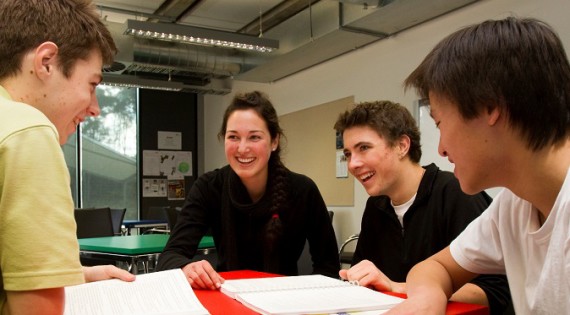Uncle Curmudgeon: Don’t Hide Learning When It’s Fun!

Every now and then, I come across a letter from Uncle Curmudgeon, an old retired teacher, to his niece, Kennari, an aspiring new teacher. I’m happy to pass them along from time to time!
Dear Kennari,
Greetings. It’s another slow day here at Sweet Meadow Acres for Retired Teachers. I’ve been sitting on the porch in the rocker watching Mr. Klaus, a former PE teacher, try and organize a game of kickball. He made two captains and told them to pick teams. Everyone is now arguing because the teams aren’t fair, and Ms. Bilodeau is crying because she was picked last. Typical.
I’m so glad to hear that your students enjoyed the word puzzles you created. Brilliant! Not only are they practicing key high frequency and vocabulary words, but they are, perhaps, picking up a love that will last them a lifetime—one of playing with and being fascinated with words. Hunkering down by the fire with a crossword puzzle (or even its two-bit cousin the word search) is one of the great lost pleasures. What if we could help today’s children break free from the mind-numbing electronic soup with which they soak their brains during every waking moment? Can we envision a world where today’s children will someday enjoy simple indulgences such as crossword puzzles or, dare I venture, real books?
As wonderful as your latest success sounds, there was something in your letter I found troubling. You said, “The students were having so much fun that they didn’t even know they were learning!” Reading your letter I could see the mischievous twinkle in your eye. Thought you pulled one over on them, did you? They didn’t even know they were learning, you say?
Why in tarnation would we not want the children to know they are learning?! Especially when they’re having fun? Do we really want students to only think they’re learning when the work is overly frustrating or boring? Quite the contrary! We should make sure students know they’re learning when engaged in a fun activity such as word puzzles (or putting on a play, or building a model, or—heaven forbid in today’s schools—painting a picture!). After all, if we want them to be lifelong learners, don’t we want them to love learning? In order to love it, don’t they need to recognize it when it’s happening?
So what should we do, you ask? When they’re having fun and learning, let’s beat them over the head with it. We should run around the classroom, whispering in their ears, “Jimmy, isn’t this fun? Look at how much you’re learning!” and “Wow! Maria! Look at how much you’re learning. You must be having so much fun!” etc.
Perhaps you worry that if you draw their attention to the fact that they’re learning, you’ll somehow diminish the current pleasure and ruin the moment. Quite the contrary—you might actually increase students’ enjoyment. Remember, despite what that crotchety colleague down the hall keeps spouting off about in the lunch room, kids really do want to learn. To draw their attention to their learning in a joyful moment accomplishes two things. They will sit up a bit straighter with a bit of a glow, “Look at that! I am learning, and my teacher knows it!” and they will be more likely to take the view in the long term that learning itself is pleasurable.
There’s something else you might be worried about…parents. There are, unfortunately, a small number of sometimes vocal parents who think that if kids are having fun in school, they must not be learning. After all, when in school themselves they whittled away countless school hours cramming useless facts into their heads and practicing low-level rote skills. And they turned out all right, right?. (I know…debatable.) School, and therefore “learning,” was miserable, and they fear that if their children aren’t similarly wretched, they must not be learning. They are, of course, well intentioned, however misguided. Be proactive with them and make sure to hammer home the important learning elements of any fun work you do in every newsletter, email, and phone call. Let’s try not to pass along these same hang-ups to the next generation. Just because parents didn’t like learning as a kid doesn’t mean their children have to feel the same way.
If schools could somehow break the age-old tradition of disconnecting fun and joy from learning, we might actually make some real progress.
All my best,
Uncle Curmudgeon




